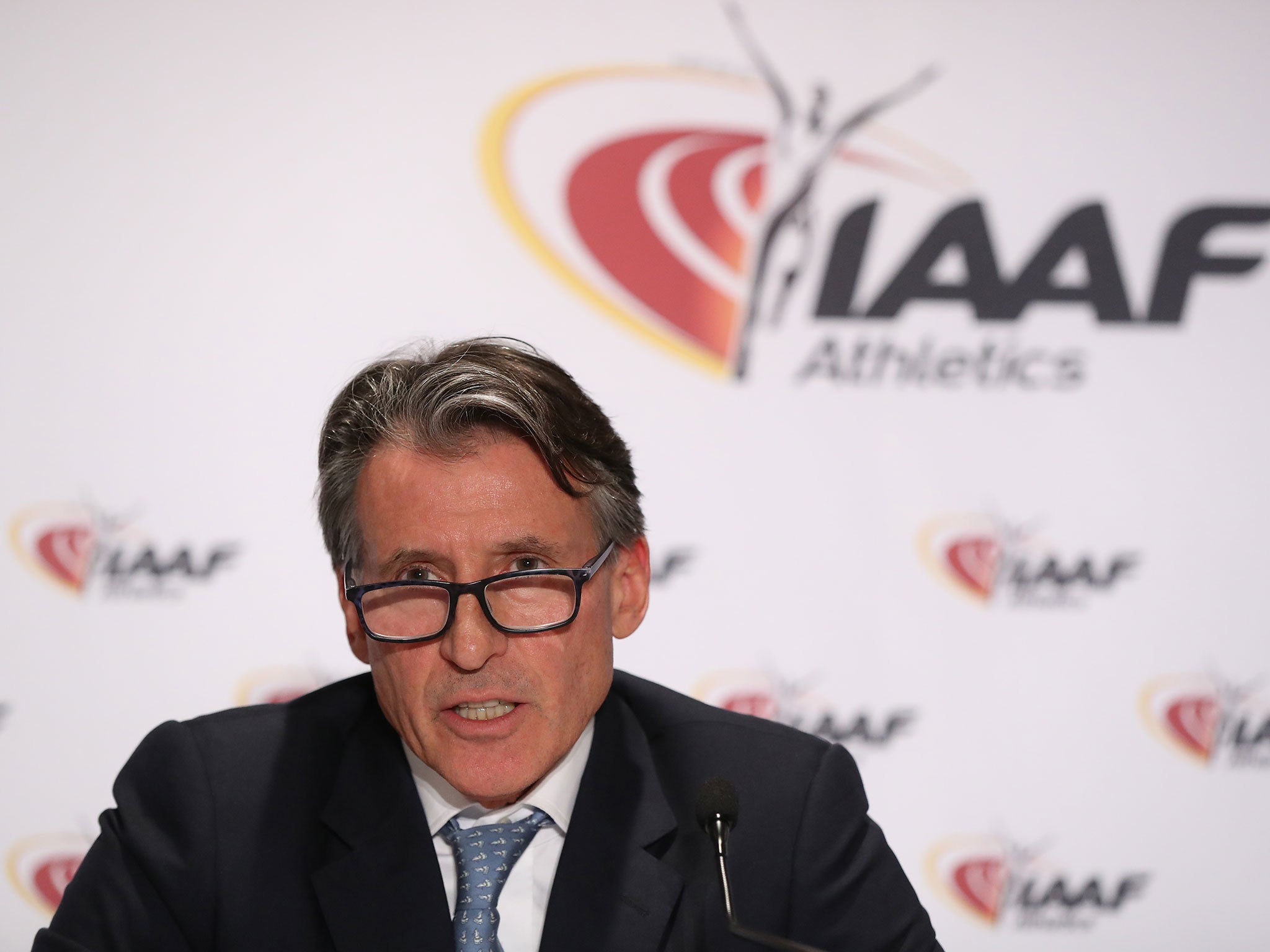Sebastian Coe rejects request to give more evidence after knowledge of IAAF extortion racket comes under question
Coe cannot be compelled to attend as he is a member of the House of Lords, despite former athlete Dave Bedford contacting him numerous times regarding corrupt IAAF officials

Sebastian Coe has flatly refused a request by MPs to give more evidence to their inquiry into doping in his sport, after it emerged that he did not respond to a telephone call, email and text messages about an extortion racket involving officials at the IAAF, the organisation he now leads.
The culture, media and sport select committee attempted to recall Coe, the IAAF president, immediately after evidence from the former athlete and administrator Dave Bedford contradicted his own claim to the MPs that he had no idea about the scale of corruption within the body, which he now heads, until the broadcast of revelations by German investigative journalists. But in a development which potentially damages his own credibility, Coe declared through the IAAF that he will not present himself for an examination, as he can legally reject the invitation as he is a member of the House of Lords.
In the light of Bedford’s evidence, attending would have been challenging, but the IAAF said on Coe’s behalf that there was “no further information” that he could provide to the inquiry.
Committee chairman Damian Collins said there were “clear and important questions” for him to answer on 31 January, after the select committee members described Coe’s lack of curiosity about the corruption as “extraordinary”, “lethargic”, and “wilfully ignorant” during Tuesday’s evidence
The committee heard detailed testimony of how he had been walking in the Swiss mountains with his son when Bedford first telephoned him to warn him and urge him to examine the problem.
He had been driven to do so because he had encountered the same wall of silence from the IAAF’s own newly-convened ethics committee. But despite the warning by Bedford that senior figures close to former IAAF president Lamine Diack had forced the Russian marathon runner Liliya Shobukhova to pay £360,000 to conceal a positive drug test, the brief telephone call Coe took in the mountains elicited no promise of action.
Coe did not reply to a subsequent email from Bedford, which carried Shobukhova’s name in the header, nor to an offer by Bedford to meet informally to discuss it, both offered up in August 2014. There was also no reply from him to a subsequent text message sent by Bedford, checking that he had actually received the email. That was sent because Bedford was so surprised and disappointed that Coe – who later became IAAF president – did not reply to the email.
When I heard he had not opened it I was surprised and quite disappointed
Bedford reflected that there was no point being offended by this failure to respond to an email, despite the recipient’s position near the top of athletics, because Coe very rarely replied to them. “He is poor at responding to emails and I’ve heard that from other people,” Bedford said. “He rarely responds to emails. He responds to texts more than anything else.” Without doubt,” Coe must have known what the email was about, Bedford said.
Despite the many attempts made to reach him by Bedford, Coe – who was vice-president of the IAAF at the time - told the committee in December 2015 that he had been entirely unaware of the scale of the corruption within the organisation until a series of revelations from German broadcaster ARD were broadcast in December 2014.
These implicated the IAAF marketing executive Papa Massata Diack, the son of the then president Lamine Diack, and the IAAF treasurer Valentin Balakhnichev as well as a number of other key figures in the racket. Both Massata Diack and Balakhnichev have since been banned from athletics for life.
Coe initially condemned the German TV documentary makers ARD, describing their investigative journalism a "declaration of war" on athletics. He has never apologised for that statement. Bedford said that if he had made such a comment about the documentary, he would have “regretted” it.
Coe’s apparent unwillingness to tackle the issue which Bedford alerted him to appears to have stemmed from a reluctance to jeopardise his presidential election campaign, in which he needed Diack and his allies. Coe once called Diack "my spiritual leader" and Bedford used the same imagery to describe the kind of control Diack would have wielded in the teeth of the allegations about his son. “You may get a couple of words in and then you would [have to] listen [to Diack], almost in a God-like way,” Bedford said.
It was not until last year that the IAAF admitted that Coe had received the email but insisted he had forwarded it on without opening it.
Subscribe to Independent Premium to bookmark this article
Want to bookmark your favourite articles and stories to read or reference later? Start your Independent Premium subscription today.

Join our commenting forum
Join thought-provoking conversations, follow other Independent readers and see their replies